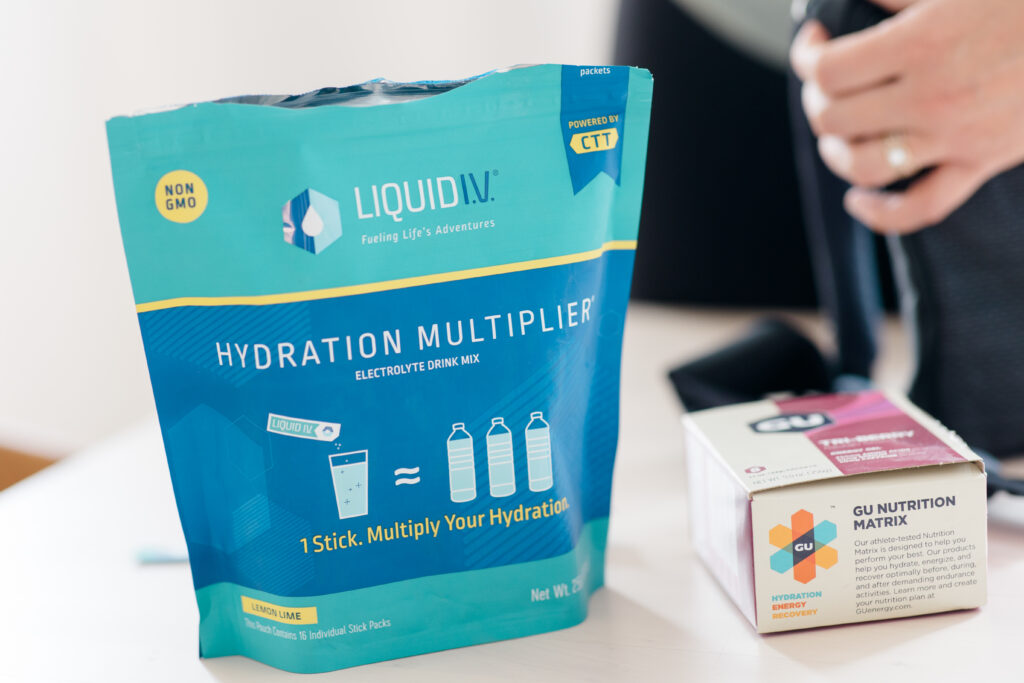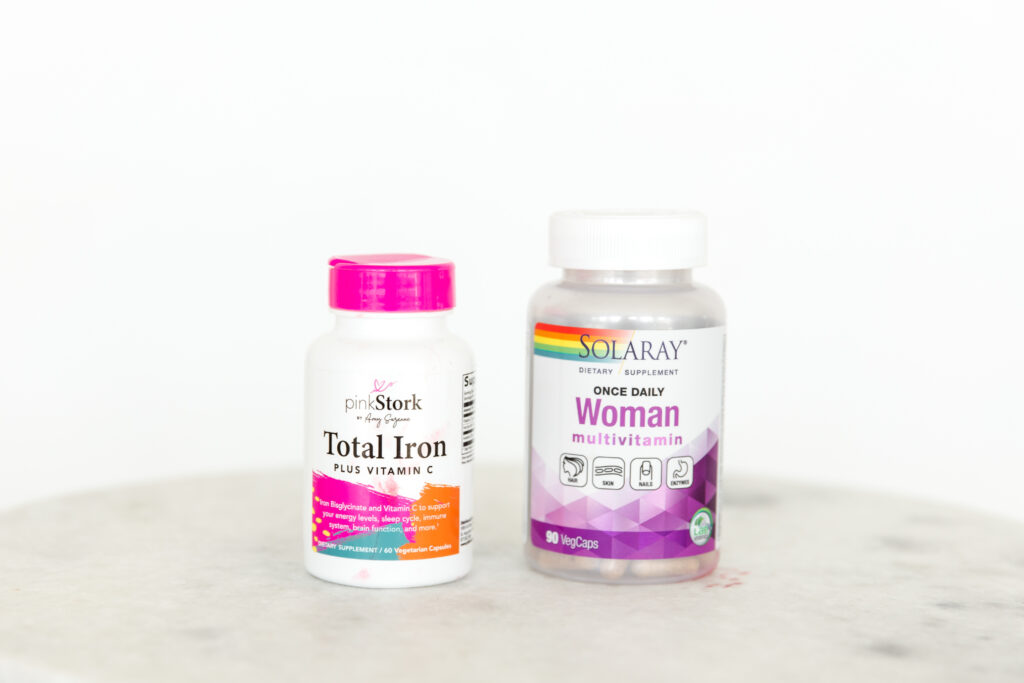Boosting Performance with Sports Nutrition
Welcome to the Ultimate Guide to Endurance Supplements for Runners, a comprehensive resource designed to enhance your performance through the power of sports nutrition. Whether you’re a seasoned marathoner or a beginner eager to improve your stamina, understanding the synergy between running and nutrition is key. This guide dives into essential supplements that can boost your endurance, ensuring that every step takes you closer to your goals. Discover how to fuel your body effectively, optimize recovery, and elevate your running experience with targeted nutritional support.
Understanding the Basics of Sports Nutrition for Runners
In the realm of endurance running, grasping the basics of sports nutrition is not just beneficial—it’s essential(1). The foundation of a runner’s diet rests on macronutrients: carbohydrates, proteins, and fats, each playing a unique role in fueling the body. Carbohydrates are the primary source of energy, crucial for sustaining long-distance efforts. They stockpile as glycogen in muscles and the liver, ready to be tapped into when your body demands that extra burst of energy. Proteins, on the other hand, are the building blocks of muscle repair and growth. After miles of pavement pounding, it’s protein that helps repair the micro-tears in muscle fibers, fostering recovery and strengthening endurance. Fats, often underrated in the athlete’s diet, serve as a vital energy source for longer, moderate-to-low intensity runs and support the absorption of essential vitamins.
But the role of micronutrients—vitamins and minerals—cannot be overstated. Iron, for instance, is pivotal for oxygen transport in the blood, directly impacting endurance performance. Magnesium plays a key role in muscle function and energy production, while calcium supports bone health, crucial for runners pounding the pavement day in and day out. Equally important is hydration; water and electrolytes work in tandem to maintain fluid balance, nerve function, and muscle contractions. Electrolytes like sodium, potassium, and magnesium become even more critical during long runs or in hot weather when sweat losses increase.
Understanding sports nutrition for runners means more than just knowing what to eat; it’s about mastering the timing and balance of these nutrients to optimize performance and recovery. This holistic approach ensures that every meal, snack, or supplement not only fuels the immediate needs of running but also contributes to the long-term health and success of the runner. As we dive deeper into the world of endurance supplements, remember that these are the bricks and mortar of the formidable edifice that is a runner’s body, providing the energy, strength, and resilience needed to tackle every mile ahead.
Top Endurance Supplements for Runners
Electrolyte Replenishers
With the long miles, especially as you head into warmer weather electrolytes become critical to maintain hydration and muscle function. As little as 2% dehdyration results in reduce performance and cognitive function (2). Electrolytes – sodium, chloride, and potassium – play a large in maintain hydrations status. You can consume all the water you want, but in order for that water to stay in the body and within specific tissues, it has to be around electrolytes. For every 1 L you sweat, you are losing about 1000mg of sodium – the most abundant electrolyte (3).

Depending on if you are a heavy or salty sweater can dictate how many electrolytes you may need, but here are some standard electrolytes based on sweat rate:
Moderate sweaters- Products to replenish electrolytes for moderate training/average sweat rates:
Heavy sweaters – Products with high amounts of sodium:
Carbohydrate Gels and Supplements
As an endurance athlete, you ultimate form of fuel is going to be carbohydrates (4). While you don’t have to use carbohydrate supplements and opt for whole foods, sometimes supplements can come in handy due to convenience and for those with sensitive stomachs.
When you are on a run or bike that lasts 90 minutes to 4 hrs, you need to aim for 30-60g of carbohydrates per hour to sustain muscle glycogen stores. However, when your training starts to exceed 4 hrs, you need to aim for 60-90g (if not more) of multiple transportable carbohydrates (4).
Some of my carbohydrate recommendations include:
- Gu (classic)
- Huma (good for sensitive stomachs)
- Maurten (high cost, but they have a high quality product)
- Endurance Tap (simple and locally made)
- Precision Nutrition and Hydration
- Science in Sport (prefer the thinner texture)
Protein Powders
Protein powders are not required but due to the high demand of endurance athletes, sometimes they might help. Adding protein powders to yogurts, oatmeal, smoothies, pancakes, and more, can really help with boosting protein intake. Endurance athletes are now recommended to have between 1.7-2.2g/kg of body weight of protein (5). The use of a supplement should not be relied upon, but rather help athletes meet high demands.

Creatine Monohydrate
Creatine is an amino acid that is vital for producing adenosine triphosphate (ATP, aka the body’s energy currency), the primary energy source for muscle contractions (6). It’s a naturally occurring compound found in small amounts within meat and fish. We would need to consume 12 lbs of red meat to saturate stores in the muscle, which makes supplementation a preferred option for most.
The main reason for supplementing with creatine is to saturate your muscle stores and free-creatine levels. This saturation is not possible through diet alone or is extremely unlikely (6). By supplementing with creatine, endurance athletes can enhance ATP production and improve exercise performance.
Typically recommendation is to consume 3-5g per day to saturate stores within a 3-4 week period. Some minor side effects include water retention and gastrointestinal distress. As always, consult with a sports dietitian to see if a supplement with creatine is a benefit to you.
Iron and Vitamin Supplements

Supplementing with vitamins and minerals such as iron and Vitamin D has become quite popular in recent years. However, I caution over supplementing. For example, iron and Vitamin D can have too much of causing more harm than good.
It is only recommended to supplement micronutrients when there is a deficiency present. Most, not all, can be determined with a blood test. This is where working alongside a physician and dietitian can be beneficial to see if you are defiant. Then if supplementation is warranted or if it can be accomplished through food first.
How to Choose the Right Supplements for Your Running Goals
Navigating the dietary supplement industry can be daunting due to its vast array of types, brands, and claims, coupled with a regulatory environment that does not always guarantee product integrity. While supplements are not essential for everyone, certain groups—like those with nutrient deficiencies, pregnant or breastfeeding women, and athletes—may benefit from targeted supplementation. However, caution is advised to avoid over-dosage and potential interactions with medications, highlighting the necessity of consulting healthcare professionals for personalized advice. By adhering to the steps for verifying supplement safety, efficacy, and quality, consumers can make informed choices, ensuring they invest in products that truly enhance their health without unnecessary risks. Refer to my previous blog post on how to choose safe supplements: How To Choose Supplements
Incorporating Supplements into Your Training Regimen
Successfully integrating supplements into your training regimen requires more than just selecting the right enhancers; it demands a thoughtful strategy that aligns with your dietary habits, training goals, and the unique demands of your body. Begin by understanding the synergistic relationship between your diet and supplements. Supplements are not meant to replace whole foods but to complement your nutrition plan, filling in gaps and providing targeted support where needed. For instance, electrolyte supplements can be crucial during long runs or in hot conditions, while protein powders can aid in recovery after intensive training sessions.
Timing is another critical aspect to consider. Certain supplements are more effective when taken at specific times. For example, consuming a carbohydrate-rich energy gel during a long run can provide a timely energy boost, while taking protein immediately after a workout can optimize muscle repair.
Moreover, it’s vital to pay attention to dosage. More is not always better when it comes to supplementation. Adhering to recommended dosages ensures that you reap the benefits without risking negative side effects or interactions. Consulting with a healthcare provider or a sports nutritionist can provide personalized advice and ensure that your supplement regimen is safe and effective.
Lastly, consider the quality and purity of the supplements you choose. The market is flooded with countless products, each promising to enhance performance and recovery. Opt for supplements that are third-party tested and certified by reputable organizations. This guarantees that they are free from banned substances and meet high standards of quality and safety.
Incorporating supplements into your training regimen is a dynamic process that requires ongoing evaluation and adjustment. As your training demands, goals, or body responses change, so too might your nutritional needs. Staying informed, listening to your body, and possibly consulting with nutrition experts are key steps in ensuring that your supplementation strategy remains aligned with your overall training goals, contributing to improved performance, recovery, and health.
Take-A-Ways
This guide is brief and not all-encompassing, so always consult with a professional. In the quest for enhanced running endurance, integrating the right supplements into your sports nutrition plan can make a significant difference. From electrolyte replenishers to energy gels and amino acids, the choices are plentiful but require thoughtful consideration. Remember, the ultimate goal is to support your body’s needs, improve performance, and achieve your running milestones safely. Embrace the journey of discovering what works best for you, and let your passion for running be fueled by informed nutritional choices. Run longer, stronger, and with the confidence that comes from powering your body with the best that sports nutrition has to offer.
If you are unsure what type of supplement routine you need, you can schedule 1-on-1 consultation to get your customized supplement protocol. Schedule a 1-on-1 consultation for a supplement protocol here ($175 for 60 min session).
Get 20% off supplements through Fullscripts: Click here for 20% off supplements
If you have any questions or concerns, please reach out. Contact Stephanie Here.
References
- Vitale K, Getzin A. Nutrition and Supplement Update for the Endurance Athlete: Review and Recommendations. Nutrients. 2019 Jun 7;11(6):1289. doi: 10.3390/nu11061289. PMID: 31181616; PMCID: PMC6628334.
- Armstrong LE. Rehydration during Endurance Exercise: Challenges, Research, Options, Methods. Nutrients. 2021 Mar 9;13(3):887. doi: 10.3390/nu13030887. PMID: 33803421; PMCID: PMC8001428.
- Veniamakis E, Kaplanis G, Voulgaris P, Nikolaidis PT. Effects of Sodium Intake on Health and Performance in Endurance and Ultra-Endurance Sports. Int J Environ Res Public Health. 2022 Mar 19;19(6):3651. doi: 10.3390/ijerph19063651. PMID: 35329337; PMCID: PMC8955583.
- Jeukendrup AE. Carbohydrate intake during exercise and performance. Nutrition. 2004 Jul-Aug;20(7-8):669-77. doi: 10.1016/j.nut.2004.04.017. PMID: 15212750.
- Jäger R, Kerksick CM, Campbell BI, Cribb PJ, Wells SD, Skwiat TM, Purpura M, Ziegenfuss TN, Ferrando AA, Arent SM, Smith-Ryan AE, Stout JR, Arciero PJ, Ormsbee MJ, Taylor LW, Wilborn CD, Kalman DS, Kreider RB, Willoughby DS, Hoffman JR, Krzykowski JL, Antonio J. International Society of Sports Nutrition Position Stand: protein and exercise. J Int Soc Sports Nutr. 2017 Jun 20;14:20. doi: 10.1186/s12970-017-0177-8. PMID: 28642676; PMCID: PMC5477153.
- Kreider RB, Kalman DS, Antonio J, Ziegenfuss TN, Wildman R, Collins R, Candow DG, Kleiner SM, Almada AL, Lopez HL. International Society of Sports Nutrition position stand: safety and efficacy of creatine supplementation in exercise, sport, and medicine. J Int Soc Sports Nutr. 2017 Jun 13;14:18. doi: 10.1186/s12970-017-0173-z. PMID: 28615996; PMCID: PMC5469049.
